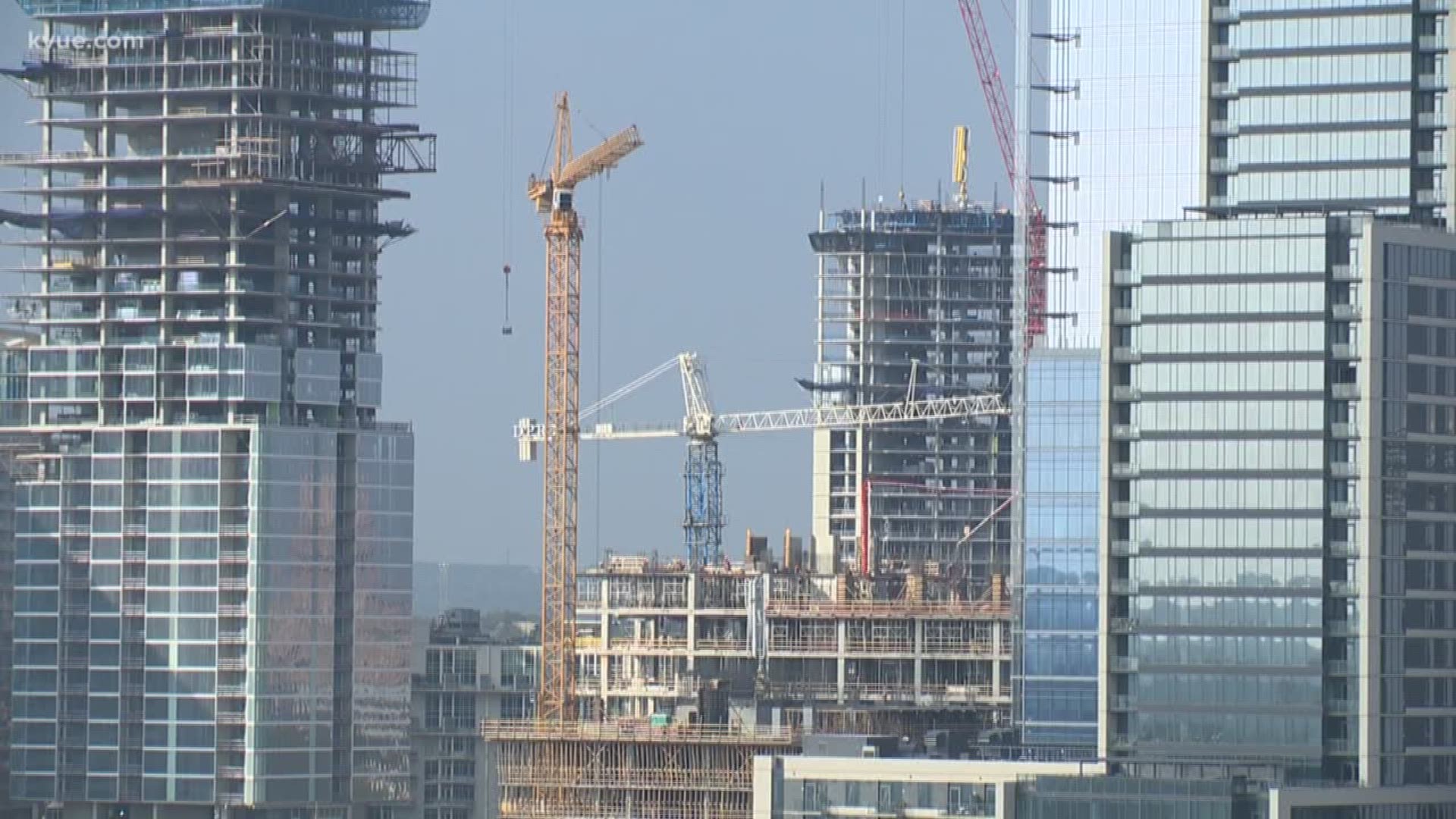AUSTIN — AUSTIN -- The PAC Let Us Vote Austin filed a petition with more than 32,000 signatures Thursday morning to allow Austin residents to vote on CodeNEXT. It's the latest chapter in the city's saga to re-write the land development code.
In order to build anything in Austin, houses, businesses, roads, etc., you have follow Austin's land development code. Many say the code is too long, complex and is part of the reason why it's so expensive to build in the city.
"The existing land development code is one of the biggest reasons why we have the traffic problems we have in our city, the flooding problems we have in the city. Why we see so many buildings being torn down and big buildings being built in their place," said Mayor Steve Adler.
So the city is re-writing it. That re-write is called CodeNEXT. The city has been working on it since 2013 with the intent to have the City Council approve it in 2018. But it hasn't exactly been smooth sailing. Residents have pushed back against proposed changes to their neighborhoods, and the timeline has been postponed, which means it's costing more. And now there's a new layer of complexity -- the petition.
RELATED:
The petition from Let Us Vote Austin PAC is requesting a new ordinance that states if and when the City Council approves CodeNEXT, it would have to get voter approval by election before it goes into effect.
"Every single person in this city knows what's in their best interest regarding their neighborhood, their home and their property better than any city council member. And so we'll rely on them to decide at the end of the day," said attorney Fred Lewis, who serves as treasurer for the Let Us Vote Austin PAC.
But Mayor Steve Adler has some concerns about the petition. Mainly that, historically, people on one side of town vote more than others, which is partly why Austin switched to geographic representation. He said in a 10-1 council, each member has one vote to weigh in on complicated issues, such as CodeNEXT, on behalf of their constituents.
"As a community, we said that we wanted to ensure that those districts in our city, those areas, primarily areas with communities of color, actually had an equal voice even if their voter turnout wasn't the same as other areas," said Adler.
The story of CodeNEXT is far from over. The re-write itself is still in draft form and has to be presented, and likely changed, by the city's boards and commissions -- and then the City Council.
As for the petition, the city clerk has to verify the signatures on the petition are valid. That could take a few weeks. If she finds the petition is valid, the City Council has 10 days to do one of two things: adopt the ordinance, or send it to the voters to decide.
However, city staff are questioning if the petition is even legal because of state law on zoning code.
KVUE will continue to keep you updated on the process proceeds.

